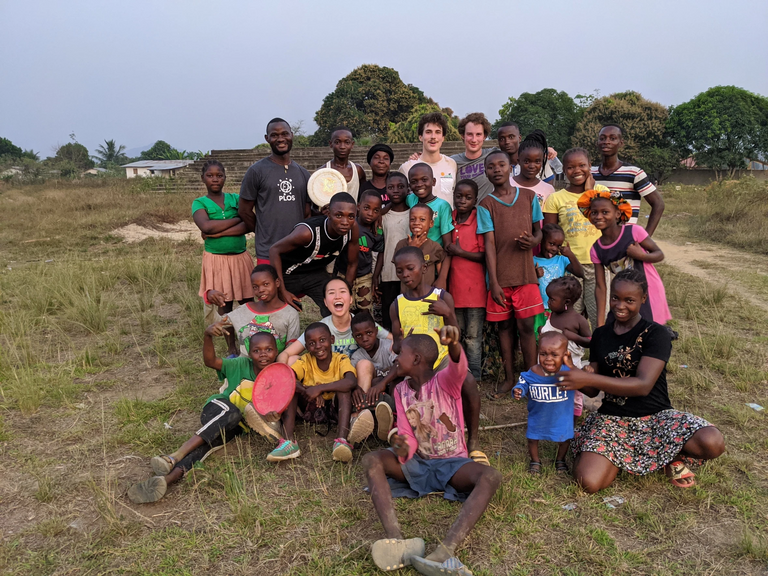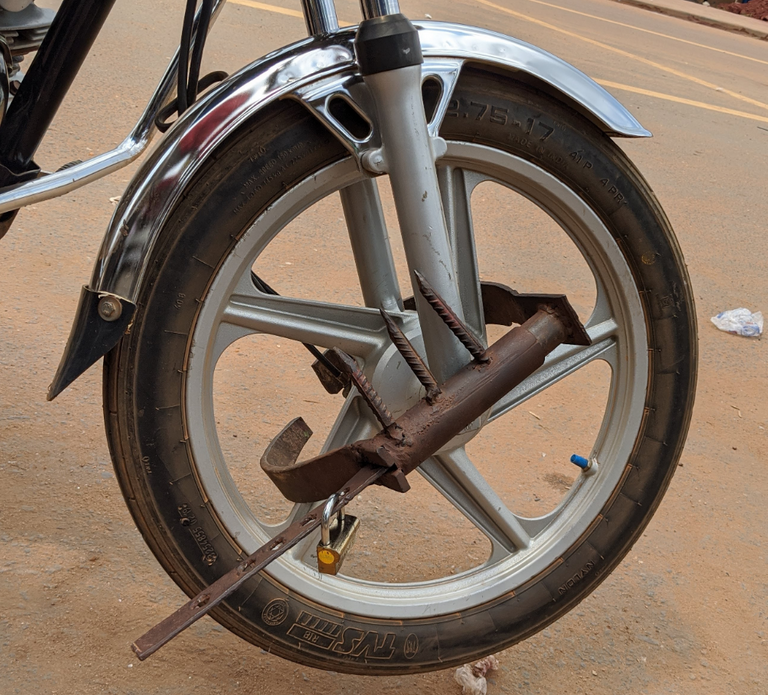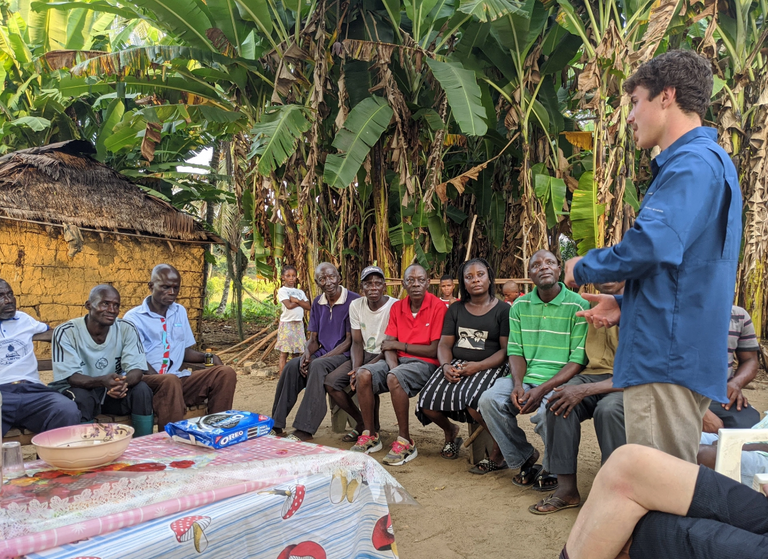My family and I returned to Liberia in February. Ma, Pa, Dr. H, and Dr. Le, as they were so lovingly referred to. They had long planned to visit me and airfare was locked in. We went ahead with the trip, no longer under the guise of Peace Corps.
After one night of warming up in Monrovia, we took dusty northwest road to Bopolu. The checkpoints, where officers dress in a variety of nondescript uniforms and ask for “cold water” before one can cross the rope gate, were less accommodating than normal. Before, a flash of the Peace Corps ID worked wonders. Now, no longer an official volunteer, some longer explanations were in order.
We made it to Bopolu, our faces dustily imprinted with negatives of sunglasses. Mr. Kamara, the high school dean of students, offered us a home to stay in. His children ran up to hug us as we wobblily dismounted the motorbikes. The next several days were spent catching up, visiting campus, and playing frisbee games by evening. We trekked to Mr. Kamara’s farm and dug for yams and cassava. Some children accompanied us, masterfully crossing stick bridges in flip-flops.

Revisiting the Southeast
We passed back through Monrovia before flying southeast to visit my original site. Daniel, AKA Dr. H, quickly stepped up to ride co-pilot. We landed and walked down the road looking for a kehkeh (n. – small, covered 3-wheeled transportation vehicle), but all of them were out of town. Instead, we resorted to the omnipresent motorbike, zipping to Pleebo where we had to refuel, one of our bikes getting a boot for parking at an angle to the curb.

Any foreigner screams money, and some locals (although relatively few in Liberia) attempt extortionary ploys to buttress their minimal hourly pay. Bribery, a rose by any other name, is an accepted routine. It takes less direct routes with foreigners and can almost always be avoided with the right logic. This time, after about 30 minutes of our driver shouting, we got off the hook (or whatever you'd call that contraption).
A warm welcome
In a couple of hours, we reached the first village I lived in. As we pulled up to my old house, throngs of children ran behind our motorbikes shouting “Mr. H”. Filled with elation and covered in little hands, I introduced them to my family. The children who cried when they first saw the likes of “white man” now embraced several novel ones. I expected to see older, different faces, but they all looked the same. The 12-year-old still ordered around the 5-year-old who still dragged around the 3-year-old.
We set our things down and scurried over to the mayor’s house, where the clan chief and other head figures gave us the traditional Grebo welcome: Kola nut and Cane Rum. When asked to state our mission, I told that I was back to share my two respective families, biological and societal. Heads poked in every window, blocking out the sunlight as my biological half shared their appreciation for the welcome.
Each day brought us to several more Kola nut ceremonies, whether to welcome us to an individual family, the school, or the townspeople. We spent time, though never enough, with old friends like Ma Sue, grandmother of little Angel. S Cotee Jeh, the leading voice in town. James Collins, my cabbage farming friend who works harder than the heat. Augustus Y Dibleh, a thoughtful man who went blind just before finishing university. Uncle Ben, the school registrar and one of the only people from the town who I can keep up with through WhatsApp. Even with the week we spent there, I could not introduce my folks to everyone.

Such a great experience you have had. Wonder when the next time we can move freely that that will be ?
We are both fortunate to have such varied experiences! I wonder that too; an immunity passport sounds useful but only if reinfection or reactivation is negligible. Non-essential international airline travel? I'll give it around 3 months.
Wow, lot of respect for what you are doing. It's also nice to see how parts of world I've never been in looks like.
Thanks for sharing!
Cheers! Liberia (really most of lower West Africa) is lush and green year-round, with a rainy season and a dry season. It's a special place, much different than any other I've been too. If you ever get a chance to go you should embrace it!
The Trek to the Farm
It was a beautiful trek. Here's the GPS track. I've been meaning to add a segment of the trail to OpenStreetMap. Rumor has it that the trail network goes all the way to Bong Mine Town and beyond.
The bridge was a ton of fun. Look at @trang cross it like a pro:
The farm still relied on traditional methods of farming and most building materials were all natural.
On the way back, the children carried heavy bags of tubers back to civilization of Bopolu.
Some travelers only fly first class... myself I fly copilot.
@intrepidphotos, have you ever flown on MAF (Mission Aviation Fellowship) airlines? I feel like some of your explorations might take you to places they service.